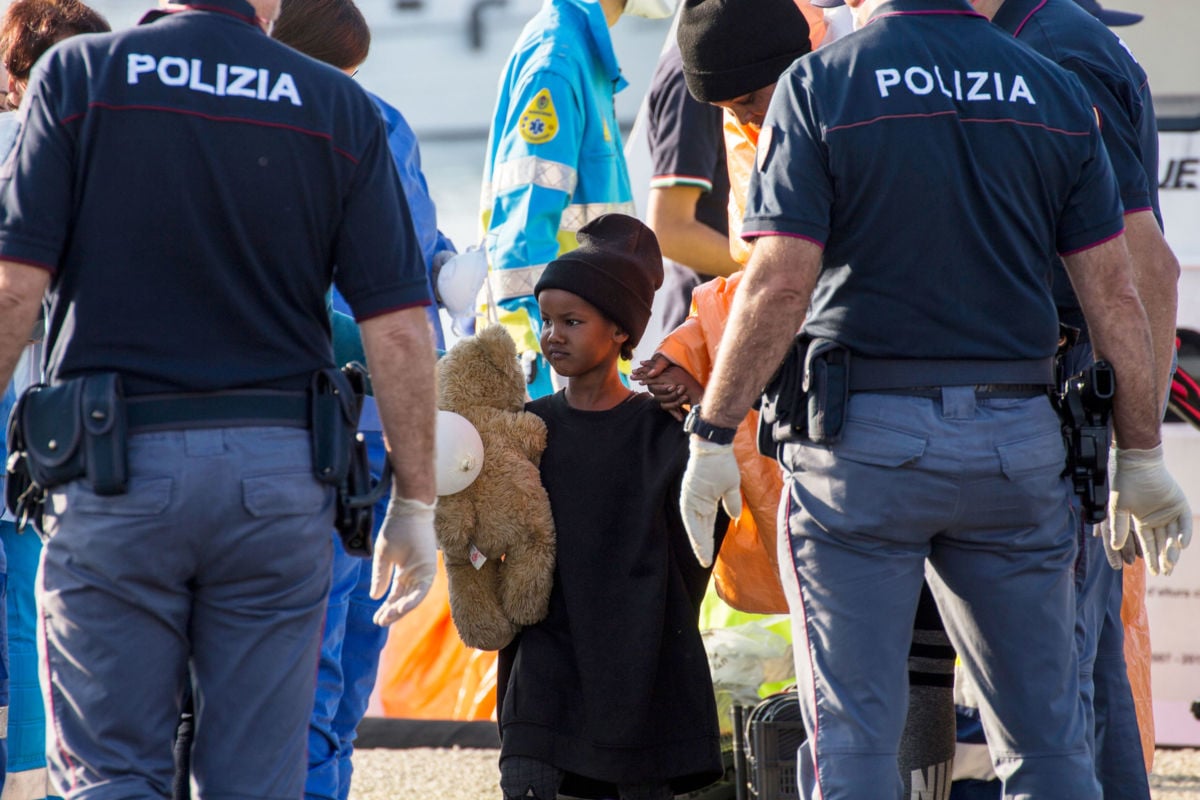Today, on Universal Children’s Day, which marks the United Nations’ adoption of both the Declaration and Convention on the Rights of the Child, our thoughts are with children who have been locked up in cages, their basic right to freedom taken away.
We learned recently that the U.S. held a record 70,000 children in immigrant detention in 2019, causing major physical and psychological trauma. As the public becomes more aware of the child abuse taking place on U.S. soil, outrage is beginning to make an impact. In late October, we learned that the federal government would not renew its contract with Caliburn, the for-profit corporation running a detention camp for immigrant youth in Homestead, Florida — effectively shutting it down for good.
For months, the American Friends Service Committee (AFSC) and other activists in Florida and across the country had called for the camp’s closure, praying and protesting outside in the rain, and watching over a camp wall as children were ushered from tent to tent. This summer, 3,000 kids were locked up there — the largest operating detention camp for migrant kids. But amid public pressure, the Homestead camp was quietly emptied in August, and most children were reunited with sponsors.
Kids belong in homes, communities and schools, not jails. If the government can shut down the Homestead detention camp so quickly, why can’t they stop the practice of locking up children for good?
Rep. Alexandria Ocasio-Cortez famously tweeted, “I don’t believe in caging kids. Pretty straightforward value. I don’t care if it’s American kids, Mexican kids, or Palestinian kids.” Like Ocasio-Cortez, we know that our horrific treatment of migrants is sadly not the only instance of the U.S. locking up children.
We are all colleagues at AFSC, the 102-year old Quaker organization, where we work to end the practice of imprisoning kids. Our mission is to make sure all children have the opportunity to return to their homes, communities and schools — whether they are immigrants in migrant jails, young people of color trapped in the U.S. prison system or Palestinian children locked up in military detention.
The school-to-prison pipeline tracks young people — overwhelmingly students of color — from schools into the criminal punishment system. Around 46,000 children are currently in the U.S. juvenile system, which sees young people of color as less than human and less deserving of resources like education. Another nearly 5,000 youth in the U.S. are held in adult prisons and jails. Instead of investing in their education, young people of color are tracked into a system that criminalizes and traumatizes them.
The U.S. also contributes directly to the detention of children abroad. Israel is the only country in the world that systematically prosecutes children in military courts — between 500 and 700 children each year. Children in military detention report physical and verbal abuse, and coercion and threats during interrogations. Despite repeated calls, authorities have failed to implement practical changes to end this violence against children.
Military aid from the U.S. funds these abusive practices, so we have a direct responsibility to stop them.
Four years ago, AFSC and Defense for Children International Palestine launched the “No Way to Treat a Child” campaign to make people in the U.S. aware of the abuses their government is complicit in, with a goal of moving Congress to take up this issue. H.R. 2407, introduced by Rep. Betty McCollum (D-Minnesota), would ensure that U.S. financial assistance provided to Israel is not used to support the detention of Palestinian children. In fact, this is the issue and bill Ocasio-Cortez was speaking about in her viral tweet when she referred to American kids, Mexican kids and Palestinian kids.
A few years ago, bringing enough attention to Palestinian child detention to create congressional action seemed impossible. Often, struggling to end migrant child detention feels the same way. And working to end the practice of locking up kids in jails can feel insurmountable.
But we know that when people’s eyes are opened to the caging of children, change happens. We’ve seen it directly.
Just as Ocasio-Cortez recognized the interconnectedness of our complicity in multiple systems of locking up children, it is time for Congress to do the same.
Our government may think it can get away with locking up kids because of their race or where they were born, but public outcry around immigrant child detention shows that people are against detaining kids when they are made aware it’s happening.
This Universal Children’s Day, it’s time to end migrant child detention, and it’s time to use that momentum and public attention to stop locking up kids for good.
Join us in defending the truth before it’s too late
The future of independent journalism is uncertain, and the consequences of losing it are too grave to ignore. To ensure Truthout remains safe, strong, and free, we need to raise $44,000 in the next 6 days. Every dollar raised goes directly toward the costs of producing news you can trust.
Please give what you can — because by supporting us with a tax-deductible donation, you’re not just preserving a source of news, you’re helping to safeguard what’s left of our democracy.
